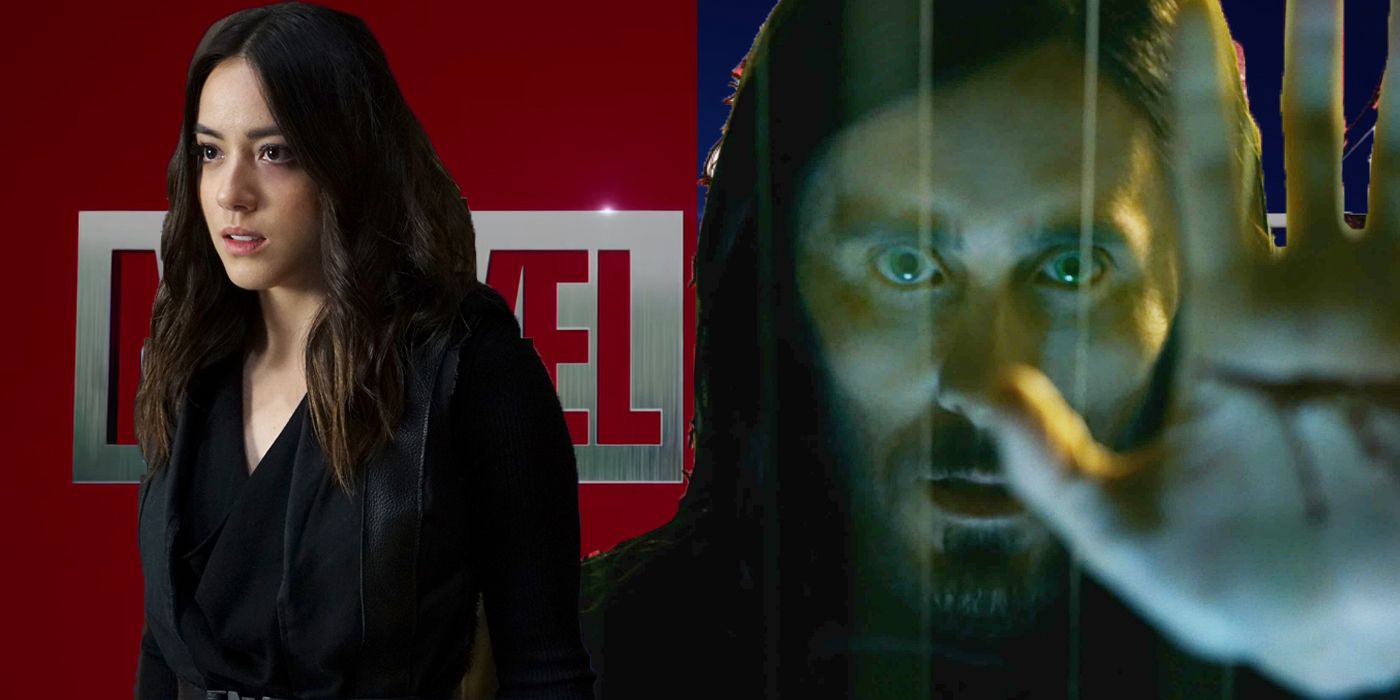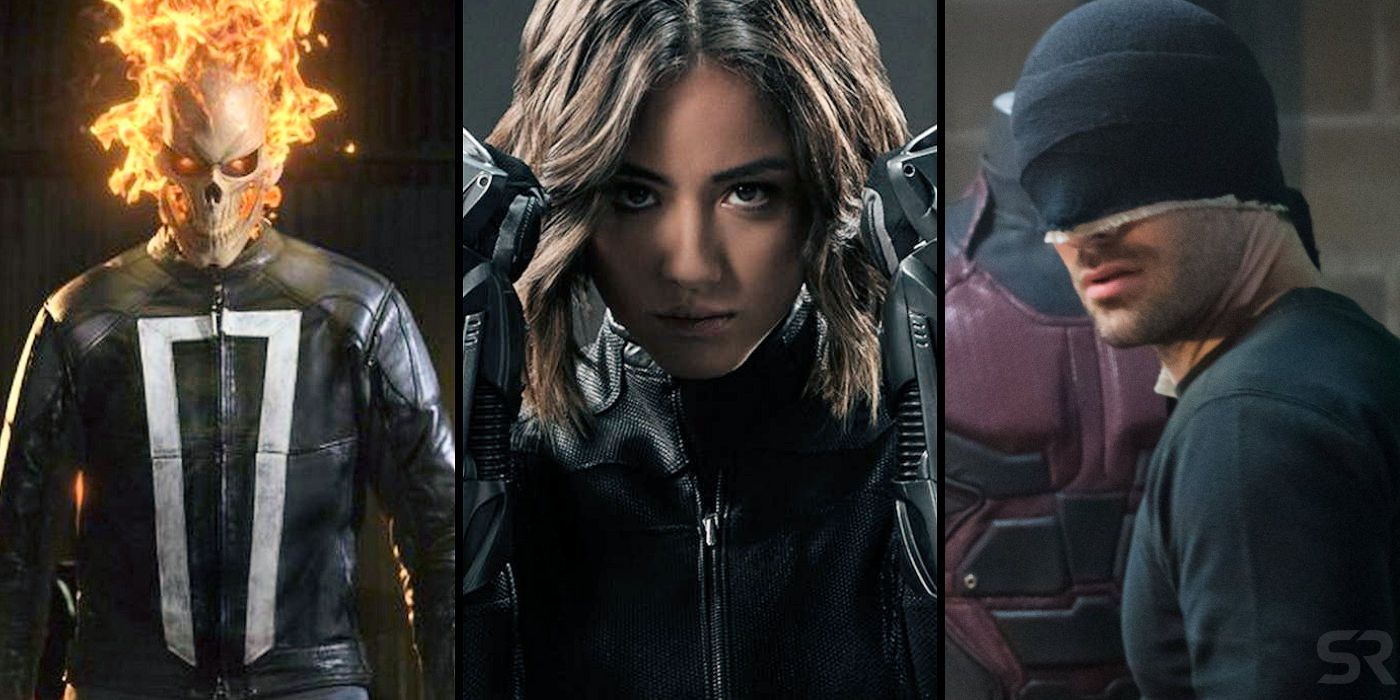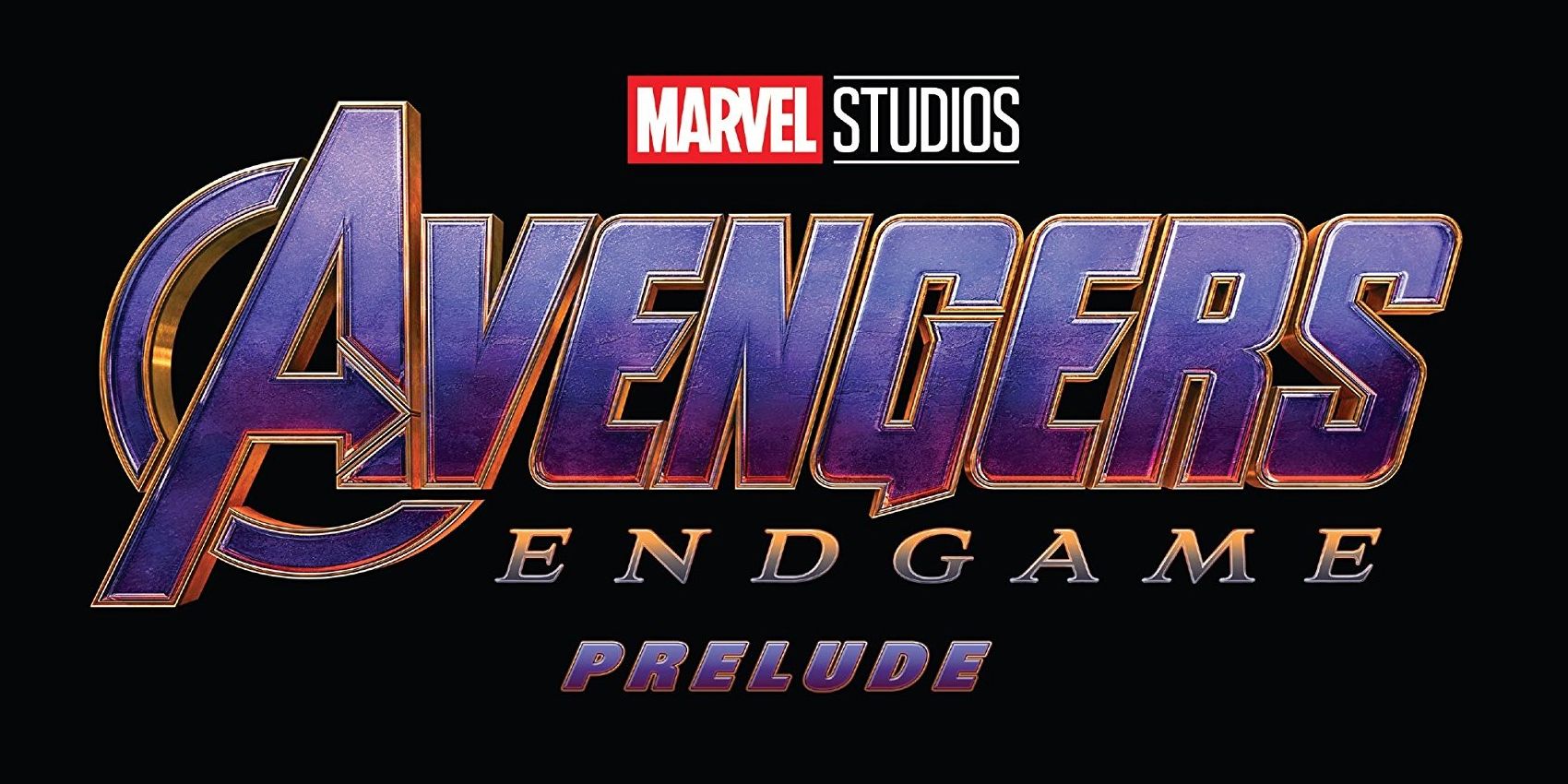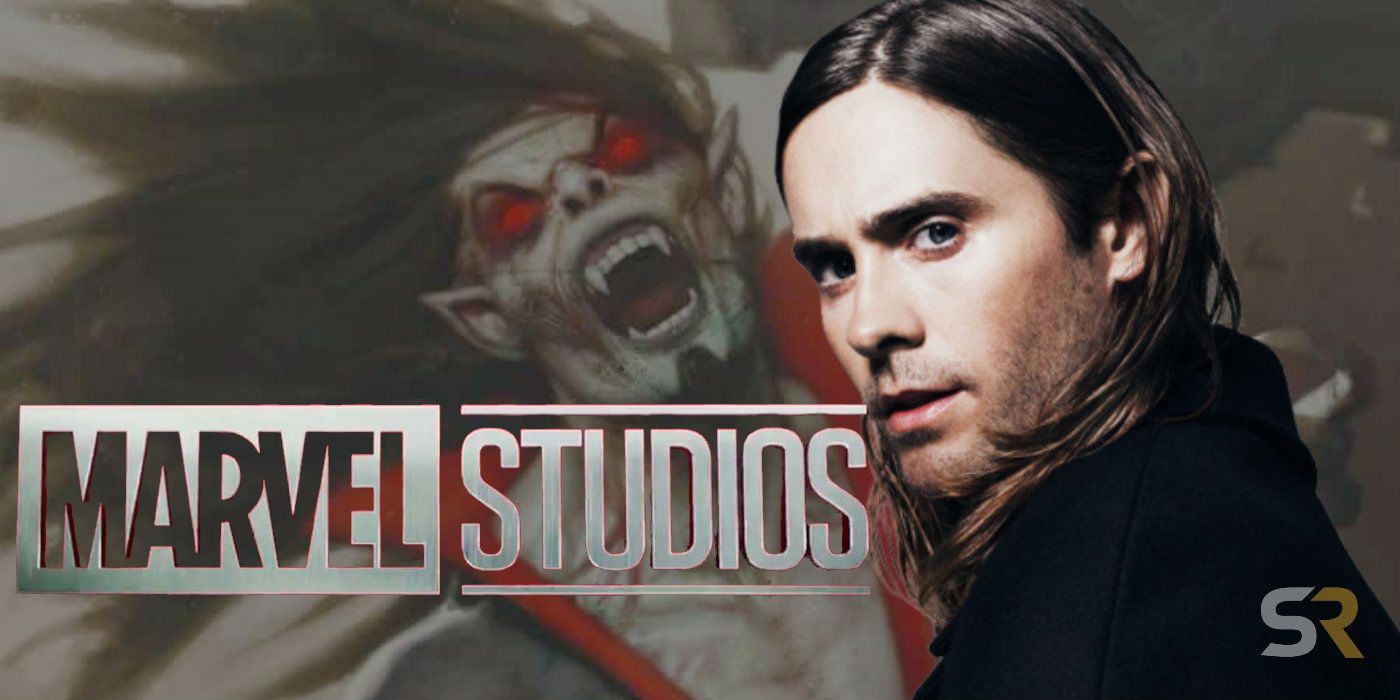As the Marvel Cinematic Universe has continued to grow and accrue more and more spin-offs to its lineup, there has been an interesting phenomenon that’s developed - many of these properties have been ignored at best or struck entirely from the canon at worst.
What’s so interesting about this occurrence is that it covers multiple media as well as multiple projects – and multiple explanations for its happening. On the one hand, there are reasons that fall outside of MCU storylines; the recent deal with Sony Pictures, which has the Spider-Man spinoff universe being grafted onto the MCU, is a prime example. On the other hand, however, there has been a changing power structure within the company which helps account for the evolving continuity's status quo. Marvel Studios, the filmmaking arm, was excised from Marvel Entertainment proper and allowed to report directly to the head of Disney’s movie division, making executive producer Kevin Feige a more autonomous - and more powerful - figure. Feige's influence has continued to grow after his promotion to Chief Creative Officer.
In fact, the striking of certain properties from the cinematic canon reflects one central truth: Marvel Studios remains the ultimate decider on the big-screen storytelling, getting the final say on what officially counts as it continues to unfurl a continuous narrative that is now entering its 12th year. And as Sony attempts to become the latest player to dare add to the Marvel Cinematic Universe pantheon, it is instructive to see the fate of previous Marvel spin-offs.
The rise and fall of Marvel TV
Just three short years after the Marvel Cinematic Universe had started, the studio was already looking for ways to expand its storytelling, to feature its smaller characters in bigger roles or to introduce new heroes altogether in more experimental ways. The answer was Marvel One-Shots, short films that would be released as special features on the Blu-ray editions of theatrical movies, which would, therefore, increase home-video sales.
The success of these ventures, combined with the white-hot success of the first Avengers outing in 2012, was enough to convince Disney’s top brass to formally request that these minisodes be transformed into full-length television episodes. What started off as just two shows for ABC - Agents of S.H.I.E.L.D. (which premiered in 2013) and Agent Carter (2015) - quickly exploded into a whole cottage industry of productions. Soon, a whopping nine additional series were on the air, bringing Netflix, Hulu, and Freeform into the mix (from 2015 to 2018). And this doesn’t even count a whole slew of additional titles that were proposed but never made it past the pilot stage.
The problem with this arrangement - beyond the exponentially increasing nature of the enterprise, as more and more executives and showrunners wanted a piece of the MCU pie - was that the rapid nature of television production clashed with the longer turnaround time of films, and the quickly changing narrative landscape on the small screen was hard to squeeze into the longer-form storytelling of the big screen. Even worse, the overseer of this format was Jeph Loeb, the head of Marvel Television, not Kevin Feige and his Marvel Studios. Reports exploded of personal and creative clashes between the two men and their rival departments.
This made the relationship between the shows and the MCU proper a strictly one-way affair, with the TV writers eager to squeeze themselves in between the films. But Feige's films ignored the shows' weekly adventures to the point that, within Agents of S.H.I.E.L.D.’s first season, Marvel Studios destroyed S.H.I.E.L.D. itself during the plot of Captain America: Winter Soldier, ostensibly taking away the television series’ premise. By the time it was announced in late 2018 that Marvel Studios was developing its own slate of TV miniseries for Disney+, centering on the films' characters who never got a franchise of their own, the writing was on the wall that Marvel TV’s various productions were doomed to narrative irrelevance, if not outright termination. Just a year later, in late 2019, Feige was promoted to chief creative officer of Marvel Entertainment, Jeph Loeb was pushed out, the vast majority of Marvel Television’s various projects were cut, and at least one major actor, Mahershala Ali who appeared in Luke Cage, was recast as a lead in a Phase Five movie.
The (sometimes) continuity of the MCU comics
The idea of doing comic book tie-ins to the Marvel films was, of course, a natural one, even before the Marvel Cinematic Universe took off in the popular culture. It comes as no surprise that the first comics dropped just a few months after the shared big-screen adventures kicked off.
But finding a balance between Marvel Studios’ desire to maintain creative stewardship and Marvel Comics' desire to expand upon the mythology proved to be difficult. Various writers pitched doing a whole plethora of projects, including an ongoing monthly series as opposed to one-shots or miniseries, and even though the movie arm of the company provided some feedback, there was still the little matter that - just like George Lucas when he presided over Star Wars - the filmmakers had no desire to have their storytelling be constrained by other, ancillary projects. By the time that the MCU hit the stratosphere with The Avengers’ release in 2012 (the same time, incidentally, that the television ball started to get rolling), the company had to take a new approach to the comics, retroactively cutting entire swaths of them from the continuity and allowing all the others to remain canon.
But even with this new status-quo, the fundamental problem of not forcing executive producer Kevin Feige and his cadre of writers and directors to acknowledge the additional stories – the same problem afflicting Marvel TV, not coincidentally – still came into play. When writer-director James Gunn wrote the script for Guardians of the Galaxy, Vol. 2, he changed the backstory between the sisters of Gamora and Nebula, thereby invalidating the Guardians of the Galaxy Prelude comic book miniseries (2014). More recently, there have been further examples: The Cosmic Quest: Volume Two – Aftermath, a novel as opposed to a comic, seemed to get the living status of Erik Selvig (Stellan Skarsgård) wrong when it hit store shelves in the year between Avengers: Infinity War and Endgame’s release. And yet another book, Thanos: Titan Consumed (released concurrently), was originally announced as being canon but subsequently had that designation stripped from it prior to its publication.
Unlike with Marvel Television, which has reached a nadir and replacement in the form of the Disney+ miniseries, it would seem that the print world will remain in the same state of affairs for Phase Four and beyond – a select number of titles that sit in a nebulous area of canonicity for the foreseeable future, until one potential movie contradicts them all.
Will Sony’s Spider-Man universe be similarly erased?
All of this is what makes Sony’s recent deal with Marvel Studios and Disney so fascinating to watch. Will it suffer the same, inexorable fate that has befallen Marvel Television and Marvel Comics?
After the two companies’ initial agreement to share the character Spider-Man came to a conclusion with the release of Spider-Man: Far from Home, the two needed to sign another contract to keep the conjoined narrative going, which fans especially clamored for, given that last movie’s cliffhanger ending. Marvel desired more of the profits from the theatrical outings, but Sony, for its part, wanted its long-sought-after Spider-Man spinoff films – which, at that point, only consisted of Venom (2018) – to be regarded as official parts of the Marvel Cinematic Universe, thereby ensuring much higher box-office performances. Marvel Entertainment seems to have acquiesced, allowing explicit references to its universe in the upcoming summer release of Morbius and appearances by at least one of its characters. Rumors are now abound that none other than Spidey himself will show up in Sony’s third entry, this fall’s Venom 2.
The central question is whether this arrangement will remain a one-way street from Marvel Studios’ perspective. Will the official MCU films ignore the characters of Venom and Morbius, just like they did with the brought-back-from-the-dead S.H.I.E.L.D. Agent Phil Coulson (Clark Gregg) or the New York heroes of The Defenders? Or barring that, will a particular plot point or character beat from Sony’s spinoffs be retconned when the next Avengers movie decides to make the collective backstory go in a different direction?
The argument could be made that the Spider-Man releases stand a far better chance of integration into the actual MCU canon. In the announced line-up for Phase Five, Blade will be releasing, and the Marvel Cinematic Universe will need to provide some explanation for the existence of vampires in a world that, so far, has been noticeably devoid of them, which is where the vampiric character of Moribus can come into play. And given that both Venom 2 and an as-yet-untitled film are scheduled to release in the months before and right after Spider-Man: Homecoming 3 (July 2021), there are more than a few possibilities for synergistic storytelling, with each installment piggybacking off of the others’ developments.









